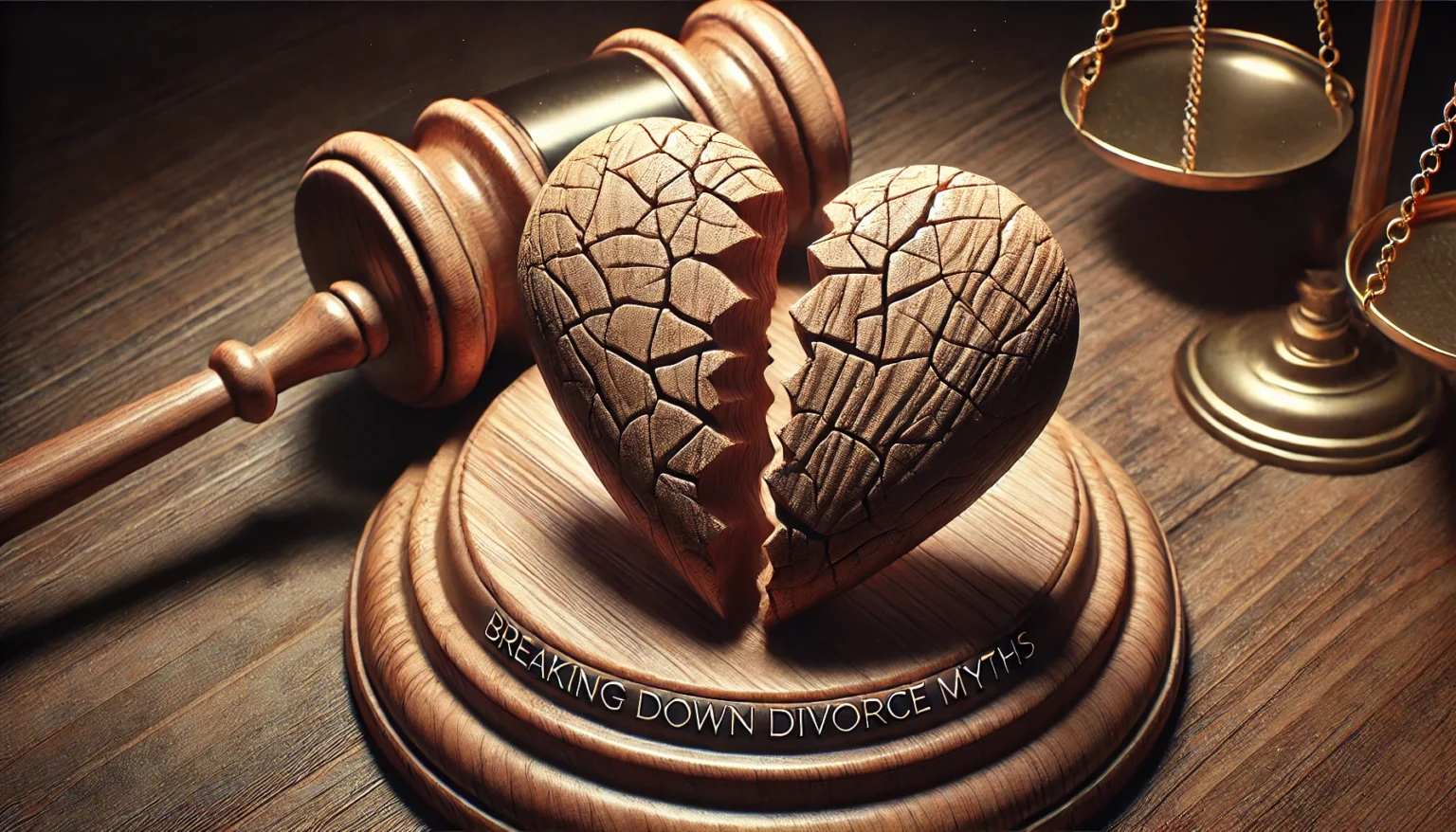Divorce is a complex and often emotionally charged topic that many couples struggle to understand fully. Although everyone knows someone who has gone through a divorce, myths about it persist, sometimes distorting perceptions. Breaking down divorce myths can be a useful exercise to better inform couples and individuals about the realities of divorce. This article will address these myths, present the facts, and help couples understand the truth about divorce.
Myth: Divorce Always Leads to a Bitter Breakup
One of the most prevalent misconceptions is that every divorce is hostile and filled with resentment. Breaking down divorce myths like this one shows that many divorces are, in fact, amicable. While divorces can be contentious, many couples successfully end their marriages through mediation or collaborative divorce, working together to find fair solutions. Cooperation and communication can ease the divorce process, enabling both parties to part on better terms.
Myth: Divorce Means Failure
Society often labels divorce as a personal or relationship failure, casting a negative light on those involved. However, breaking down divorce myths reveals that divorce is not necessarily a sign of failure but rather a decision made for growth, safety, or happiness. Many couples reach a point where their marriage no longer serves their needs or goals, and a divorce can offer a fresh start for both partners.
Myth: Children of Divorce Will Struggle in Life
One of the most damaging myths about divorce is the belief that children of divorced parents are doomed to face difficulties in life. Breaking down divorce myths like this one clarifies that while children may face adjustments, many grow up to be well-adjusted and successful. Studies have shown that the key factor is not the divorce itself but rather how the parents handle it. When parents cooperate and prioritize their children’s needs, children often adapt well.
Myth: Divorce Is Quick and Easy
Some assume that divorce is a fast process, especially with the availability of online forms and resources. However, breaking down divorce myths dispels the misconception of a “quick fix.” The reality is that divorce involves legal proceedings, financial decisions, and emotional processing. In addition, certain states or countries may have mandatory waiting periods or counseling requirements, making it a lengthier process than people may expect.
Myth: One Person Is Always at Fault
It’s easy to assume that one partner is solely responsible for a divorce, but breaking down divorce myths shows that relationship issues are typically complex. Many divorces result from a range of factors, from poor communication to incompatible goals. Divorce doesn’t have to be about blaming one person; rather, it often reflects an acknowledgment that the marriage isn’t working for either partner.
Myth: Divorce Means Cutting Off All Contact
The idea that divorce equates to total separation is another misconception. Breaking down divorce myths clarifies that, especially for couples with children, maintaining some contact may be necessary and even beneficial. Co-parenting arrangements and joint responsibilities require effective communication. Even without children, some former spouses remain friends or stay in touch, finding a balance that works for them.
Myth: Divorce Will Automatically Improve Happiness
Many people believe that divorce will immediately lead to happiness and freedom. Breaking down divorce myths shows that while some individuals do experience a sense of relief, others may face unexpected emotional challenges post-divorce. The transition can be difficult, involving grief, financial adjustments, and self-discovery. Achieving happiness after divorce often requires time and effort as individuals adjust to their new lives.
Myth: Divorce Is Expensive for Everyone
While divorce can be costly, not every couple experiences the same financial burden. Breaking down divorce myths reveals that the cost of divorce varies widely based on factors like legal representation, the complexity of the case, and the couple’s financial situation. Mediation, for example, can be a more affordable alternative to a courtroom battle. Couples can also reduce expenses by cooperating and reaching agreements without prolonged legal disputes.
Myth: Only Young Couples Get Divorced
Some believe that divorce is more common among younger couples who marry without fully understanding their partner. However, breaking down divorce myths reveals that “gray divorce,” or divorce among older couples, is becoming increasingly common. Many people decide to part ways after decades of marriage due to changing life goals or evolving individual needs. Divorce is a complex decision and can affect couples at any age.
Myth: Second Marriages Are Less Likely to End in Divorce
It’s widely believed that once someone has gone through a divorce, they are less likely to divorce again. Breaking down divorce myths dispels this misconception, as statistics show that second marriages actually have a higher divorce rate than first marriages. This could be due to factors such as blended family dynamics, financial complexities, or unresolved issues from previous relationships. Understanding these challenges can help couples entering second marriages work proactively to strengthen their relationship.
Conclusion: Empowering Couples with Knowledge
Breaking down divorce myths is crucial for fostering realistic expectations about marriage and divorce. By understanding the truths behind these myths, couples can make informed decisions, whether they are navigating a marriage, considering a divorce, or rebuilding after one. Divorce is a personal journey, and each couple’s experience is unique. Approaching it with an open mind, empathy, and a commitment to understanding can make the process more constructive and compassionate for everyone involved.








